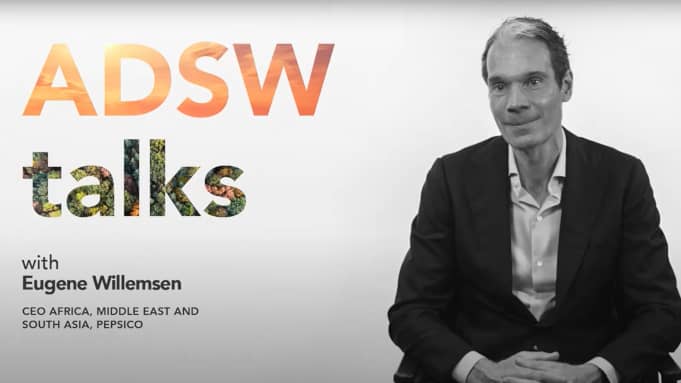Opening Ceremony lays the foundation for cross-sector collaboration and breakthrough solutions.
ADSW Talks: Operating within environmental limits
PepsiCo products are enjoyed by consumers more than one billion times a day in more than 200 countries and territories around the world. The company has a beverage and convenient foods portfolio that includes Lays, Doritos, Cheetos, Gatorade, Pepsi-Cola, Mountain Dew, Quaker, and SodaStream. PepsiCo's product portfolio includes a wide range of enjoyable foods and beverages, including many iconic brands that generate more than $1 billion each in estimated annual retail sales.
In this edition of ADSW Talks, Eugene Willemsen, CEO of Africa, Middle East and South Asia at Pepsico, shares his insights around pep+ (PepsiCo Positive) a new strategic business initiative aimed at transforming the company’s operations, value chains and evolve its portfolio of food & beverage products so that they are better for the planet and people.
The ADSW Talks series hosts influential figures from across the sustainability sector to share their perspectives on the most pressing sustainability challenges facing the world and the collective willpower and solutions needed to build a more sustainable future for all.



